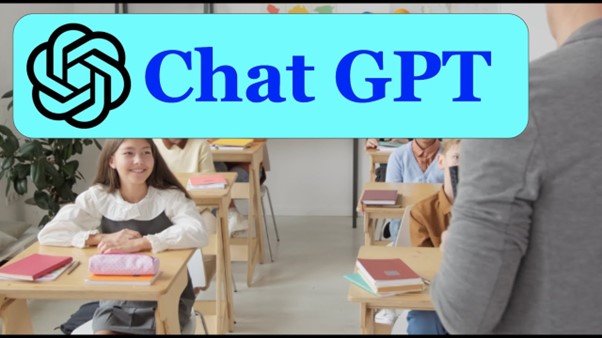As higher education moves towards online and student-centered learning, AI like GPT has the potential to personalize learning experiences, enhance active learning, and generate educational content, chatbots and virtual assistants, but also poses ethical challenges. This article explores the best practices in higher education and how agent GPT could impact them.
SwissCognitive Guest Blogger: Dr. Raul V. Rodriguez, Vice President, Woxsen University and Dr. Hemachandran Kannan, Director AI Research Centre & Professor – AI & ML, Woxsen University – Active Learning, AI Style: The Role of Agent GPT in the Classroom

Higher education is constantly evolving, with new technologies and methods of instruction emerging all the time. As we move further into the digital age, we are seeing a shift towards online learning and a greater emphasis on student-centered learning experiences. Additionally, the development of artificial intelligence (AI) and language models like GPT (Generative Pre-trained Transformer) are poised to have a significant impact on higher education in the coming years. In this article, we will explore the best practices in higher education and how agent GPT could potentially impact them.
First, let’s take a look at some of the best practices in higher education. One of the key practices is a focus on student-centered learning. This means putting the needs of the student at the forefront of the learning experience and tailoring instruction to their individual needs and interests. Another best practice is the use of active learning techniques, which engage students in the learning process by requiring them to participate in activities and discussions rather than simply listening to lectures. Additionally, the use of technology to enhance the learning experience is becoming increasingly common, with tools like learning management systems (LMS) and educational apps being utilized more frequently.
So, how might agent GPT impact these best practices? One potential use case for agent GPT in higher education is in the area of personalized learning. GPT has the ability to generate human-like responses to text-based prompts, which could be used to create personalized learning experiences for students. For example, a student could enter a question or prompt into the system and receive a response that is tailored to their specific needs and learning style. This could help to enhance student engagement and improve learning outcomes by providing students with more individualized attention and support.
Another potential impact of agent GPT on higher education is in the area of active learning. GPT could be used to generate prompts and questions for discussion-based activities, which could help to stimulate critical thinking and engage students in meaningful dialogue. Additionally, GPT could be used to create simulations and scenarios for students to participate in, providing a more immersive learning experience.
Thank you for reading this post, don't forget to subscribe to our AI NAVIGATOR!
Finally, the use of technology in higher education is likely to continue to grow in the coming years, and agent GPT could play a significant role in this trend. GPT could be used to generate educational content, such as quizzes, assessments, and interactive modules, that could be integrated into learning management systems and other educational platforms. Additionally, GPT could be used to create chatbots and virtual assistants that could help students navigate the complexities of higher education and provide personalized support and guidance.
In conclusion, the best practices in higher education are constantly evolving, and the development of AI and language models like agent GPT are likely to have a significant impact on the future of higher education. While there are certainly challenges and potential pitfalls associated with the use of these technologies, there is also great potential for them to enhance the learning experience and improve outcomes for students. As we continue to explore the possibilities of agent GPT and other emerging technologies, it will be important to remain vigilant and ensure that we are using these tools in a responsible and ethical manner.
About the Authors:
 Dr. Raul Villamarin Rodriguez is the Vice President of Woxsen University. He is an Adjunct Professor at Universidad del Externado, Colombia, a member of the International Advisory Board at IBS Ranepa, Russian Federation, and a member of the IAB, University of Pécs Faculty of Business and Economics. He is also a member of the Advisory Board at PUCPR, Brazil, Johannesburg Business School, SA, and Milpark Business School, South Africa, along with PetThinQ Inc, Upmore Global and SpaceBasic, Inc. His specific areas of expertise and interest are Machine Learning, Deep Learning, Natural Language Processing, Computer Vision, Robotic Process Automation, Multi-agent Systems, Knowledge Engineering, and Quantum Artificial Intelligence.
Dr. Raul Villamarin Rodriguez is the Vice President of Woxsen University. He is an Adjunct Professor at Universidad del Externado, Colombia, a member of the International Advisory Board at IBS Ranepa, Russian Federation, and a member of the IAB, University of Pécs Faculty of Business and Economics. He is also a member of the Advisory Board at PUCPR, Brazil, Johannesburg Business School, SA, and Milpark Business School, South Africa, along with PetThinQ Inc, Upmore Global and SpaceBasic, Inc. His specific areas of expertise and interest are Machine Learning, Deep Learning, Natural Language Processing, Computer Vision, Robotic Process Automation, Multi-agent Systems, Knowledge Engineering, and Quantum Artificial Intelligence.
 Dr. Hemachandran Kannan is the Director of AI Research Centre and Professor at Woxsen University. He has been a passionate teacher with 15 years of teaching experience and 5 years of research experience. A strong educational professional with a scientific bent of mind, highly skilled in AI & Business Analytics. He served as an effective resource person at various national and international scientific conferences and also gave lectures on topics related to Artificial Intelligence. He has rich working experience in Natural Language Processing, Computer Vision, Building Video recommendation systems, Building Chatbots for HR policies and Education Sector, Automatic Interview processes, and Autonomous Robots.
Dr. Hemachandran Kannan is the Director of AI Research Centre and Professor at Woxsen University. He has been a passionate teacher with 15 years of teaching experience and 5 years of research experience. A strong educational professional with a scientific bent of mind, highly skilled in AI & Business Analytics. He served as an effective resource person at various national and international scientific conferences and also gave lectures on topics related to Artificial Intelligence. He has rich working experience in Natural Language Processing, Computer Vision, Building Video recommendation systems, Building Chatbots for HR policies and Education Sector, Automatic Interview processes, and Autonomous Robots.


As higher education moves towards online and student-centered learning, AI like GPT has the potential to personalize learning experiences, enhance active learning, and generate educational content, chatbots and virtual assistants, but also poses ethical challenges. This article explores the best practices in higher education and how agent GPT could impact them.
SwissCognitive Guest Blogger: Dr. Raul V. Rodriguez, Vice President, Woxsen University and Dr. Hemachandran Kannan, Director AI Research Centre & Professor – AI & ML, Woxsen University – Active Learning, AI Style: The Role of Agent GPT in the Classroom
Higher education is constantly evolving, with new technologies and methods of instruction emerging all the time. As we move further into the digital age, we are seeing a shift towards online learning and a greater emphasis on student-centered learning experiences. Additionally, the development of artificial intelligence (AI) and language models like GPT (Generative Pre-trained Transformer) are poised to have a significant impact on higher education in the coming years. In this article, we will explore the best practices in higher education and how agent GPT could potentially impact them.
First, let’s take a look at some of the best practices in higher education. One of the key practices is a focus on student-centered learning. This means putting the needs of the student at the forefront of the learning experience and tailoring instruction to their individual needs and interests. Another best practice is the use of active learning techniques, which engage students in the learning process by requiring them to participate in activities and discussions rather than simply listening to lectures. Additionally, the use of technology to enhance the learning experience is becoming increasingly common, with tools like learning management systems (LMS) and educational apps being utilized more frequently.
So, how might agent GPT impact these best practices? One potential use case for agent GPT in higher education is in the area of personalized learning. GPT has the ability to generate human-like responses to text-based prompts, which could be used to create personalized learning experiences for students. For example, a student could enter a question or prompt into the system and receive a response that is tailored to their specific needs and learning style. This could help to enhance student engagement and improve learning outcomes by providing students with more individualized attention and support.
Another potential impact of agent GPT on higher education is in the area of active learning. GPT could be used to generate prompts and questions for discussion-based activities, which could help to stimulate critical thinking and engage students in meaningful dialogue. Additionally, GPT could be used to create simulations and scenarios for students to participate in, providing a more immersive learning experience.
Thank you for reading this post, don't forget to subscribe to our AI NAVIGATOR!
Finally, the use of technology in higher education is likely to continue to grow in the coming years, and agent GPT could play a significant role in this trend. GPT could be used to generate educational content, such as quizzes, assessments, and interactive modules, that could be integrated into learning management systems and other educational platforms. Additionally, GPT could be used to create chatbots and virtual assistants that could help students navigate the complexities of higher education and provide personalized support and guidance.
In conclusion, the best practices in higher education are constantly evolving, and the development of AI and language models like agent GPT are likely to have a significant impact on the future of higher education. While there are certainly challenges and potential pitfalls associated with the use of these technologies, there is also great potential for them to enhance the learning experience and improve outcomes for students. As we continue to explore the possibilities of agent GPT and other emerging technologies, it will be important to remain vigilant and ensure that we are using these tools in a responsible and ethical manner.
About the Authors:
Share this: